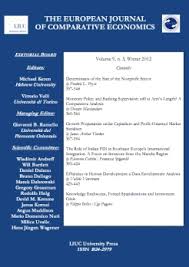
Skill Content of Intra-european Trade Flows
In recent decades, the international division of labor has expanded rapidly in the wake of European integration. In this context, especially Western European high-wage countries should have specialized on (human-)capital intensively manufactured goods and should have increasingly sourced labor-intensively manufactured goods, especially parts and components, from Eastern European low wage countries. Since this should be beneficial for the high-skilled and harmful to the lower-qualified workforce in high-wage countries, the opening up of Eastern Europe is often considered as a vital reason for increasing unemployment of the lower-qualified in Western Europe. This paper addresses this issue by analyzing the skill content of Western European countries’ bilateral trade using input-output techniques in order to evaluate possible effects of international trade on labor demand. Thereby, differences in factor inputs and production technologies have been considered, allowing for vertical product differentiation. In this case, skill content of bilateral exports and imports partially differs substantially, especially in bilateral trade between Western and Eastern European countries. According to the results, East-West trade should be harmful particularly to the medium-skilled in Western European countries.




